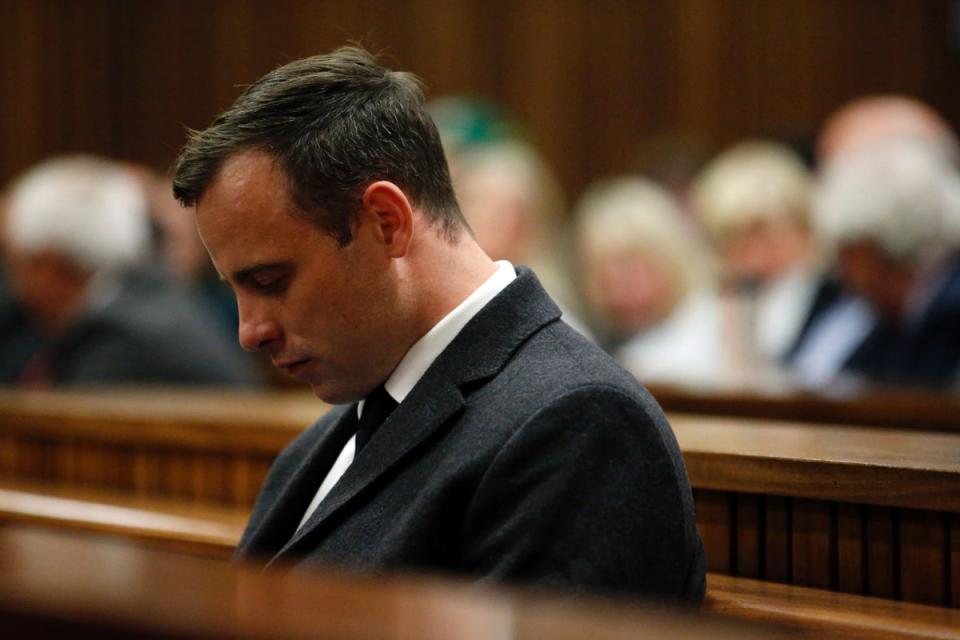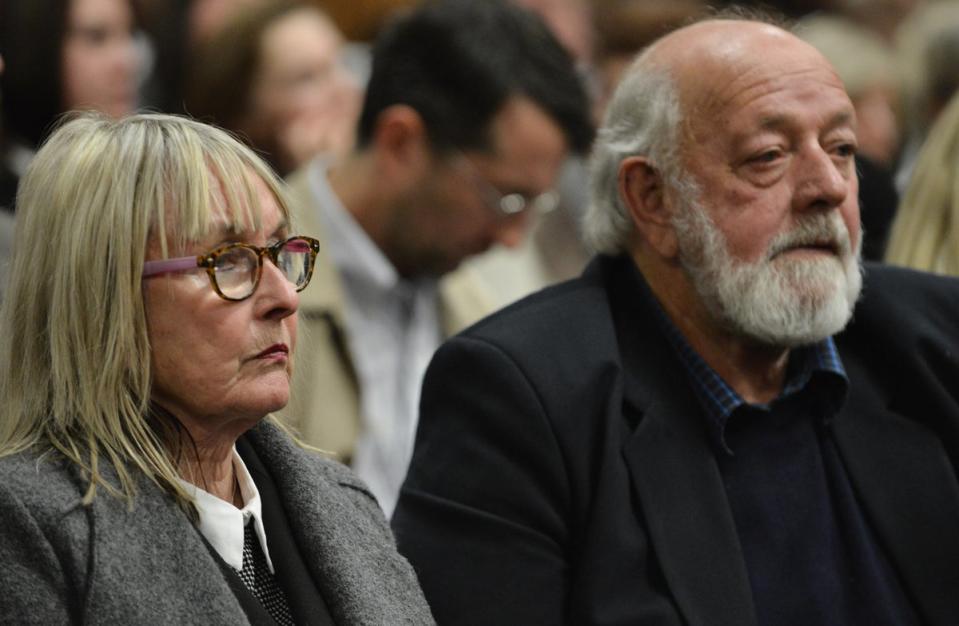Oscar Pistorius expected to attend parole hearing decade after killing girlfriend Reeva Steenkamp

Former Olympic runner Oscar Pistorius is expected to attend a parole hearing to decide if he can be released from prison ten years after shooting dead Reeva Steenkamp.
He was convicted of killing his then partner by shooting her multiple times through a toilet door in his home on Valentine’s Day 2013.
Pistorius could leave Atteridgeville Correctional Centre in Pretoria, South Africa if his parole is granted on Friday.
Ms Steenkamp’s parents, Barry and June Steenkamp, are opposed to Pistorius’s release and are allowed to address the parole board at his hearing.
A submission by a victim’s relatives is one of numerous factors taken into account.
“He is a murderer. He should remain in jail,” Mr Steenkamp said in an interview published last month on the 10th anniversary of his daughter’s killing.

Pistorius’s parole lawyer, Julian Knight, previously said the athlete had been a “model prisoner".
South Africa’s Department of Corrections declined to give details on Pistorius’s hearing, saying it was “an internal matter”.
The board will consider the offence Pistorius was convicted of, his conduct and disciplinary record in prison, whether he took part in educational or other training courses, his mental and physical state, whether he is likely to “relapse into crime" and the risk he poses to the public.
Pistorius, 36, was convicted of murder after prosecutors appealed against an initial conviction for culpable homicide.
He was eventually sentenced to 13 years and five months in prison in 2017, again after prosecutors appealed against a lighter sentence.
Offenders in South Africa convicted of serious crimes must serve at least half their sentence before being considered for parole.

He could be released on full parole or placed on day parole, where he would be allowed to live and work in the community during the day but have to return to prison at night.
He could also be placed under correctional supervision, which means he would be released but have to spend some of his time during the week at a correctional centre.
Pistorius’s parole could be denied, where the board usually asks the offender to reapply at a later stage.
Pistorius has been seeking parole since 2021 but a hearing that year was cancelled partly because he had not yet met with Mr and Mrs Steenkamp in a process known as a victim-offender dialogue.
He claims he shot 29-year-old Ms Steenkamp by mistake with his licensed pistol because he thought she was a dangerous intruder.

 Yahoo Sport
Yahoo Sport 





































